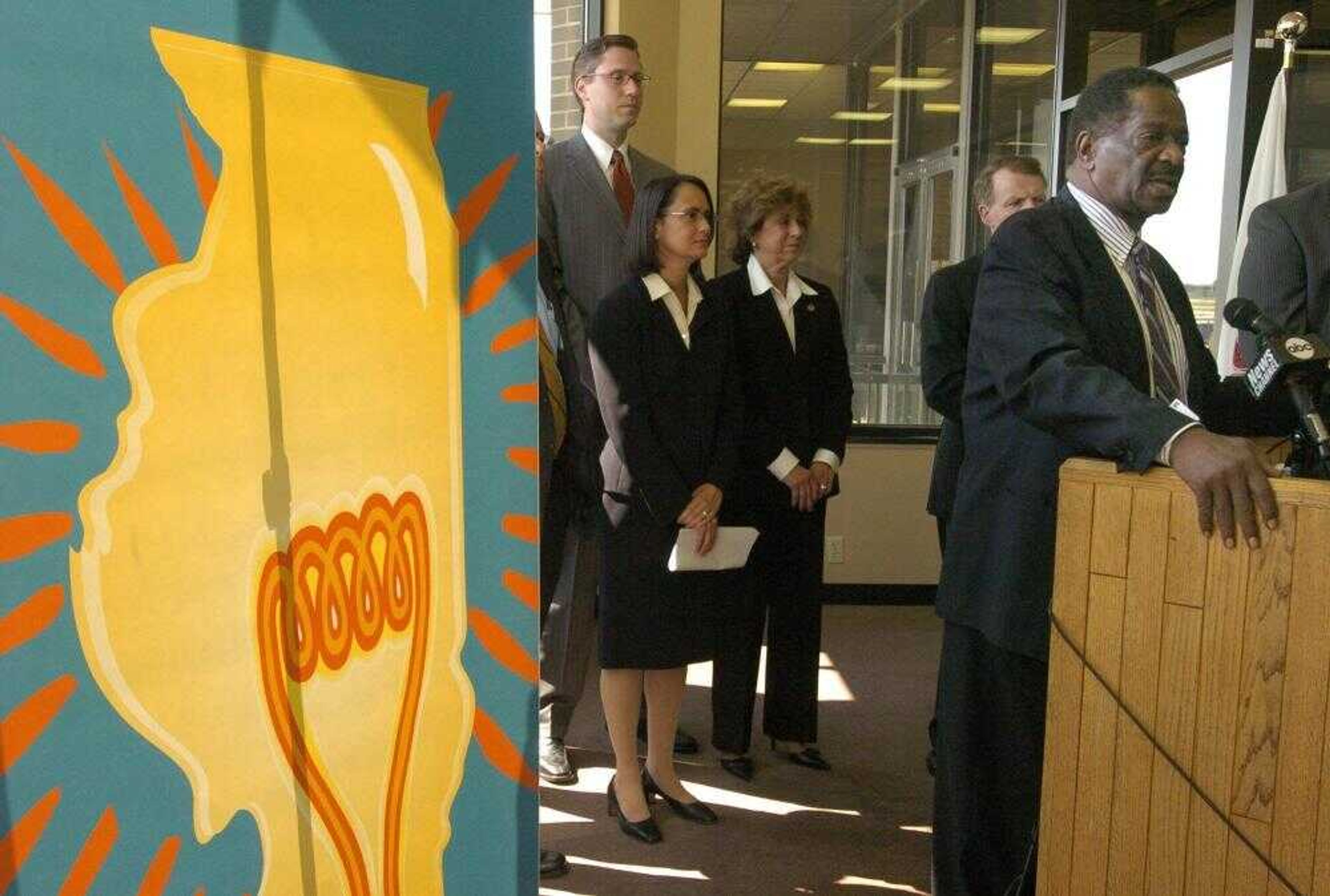Ill. leaders tout $1 billion deal, but more electric increases on the way
SPRINGFIELD, Ill. -- Rebate checks worth hundreds of dollars. Discounts of up to 70 percent on electric rates. A state agency to negotiate lower prices for electricity. Top Democrats promised all that and more Monday as they toured downstate to promote a $1 billion agreement they've negotiated with utilities to combat soaring electric rates...
SPRINGFIELD, Ill. -- Rebate checks worth hundreds of dollars. Discounts of up to 70 percent on electric rates. A state agency to negotiate lower prices for electricity.
Top Democrats promised all that and more Monday as they toured downstate to promote a $1 billion agreement they've negotiated with utilities to combat soaring electric rates.
The agreement won't prevent future rate increases, but it contains safeguards meant to prevent a repeat of this year's eye-popping jumps. Officials hope that will be enough to calm a major political storm fueled by consumer anger.
"It's a fair solution for the utility companies," said Rep. George Scully, D-Flossmoor. "It's a great solution for the people of the state of Illinois."
House Speaker Michael Madigan, Senate President Emil Jones and Attorney General Lisa Madigan promoted the plan on a taxpayer-funded flyaround to five Illinois cities -- Peoria, Decatur, Cahokia, Marion and Quincy.
"Compromise had to be made on all sides of this issue, and this is real, true rate relief," Jones said.
Republicans criticized the flyaround as premature since the agreement hasn't been introduced as legislation, let alone approved by lawmakers. They dismissed the event as a distraction from other state business and said consumers are likely to be disappointed.
"It's probably the best we can do right now," said Sen. Dale Risinger, R-Peoria. "But to get out and say this is a great deal for the public, I have a hard time with that when we don't even have a budget."
Consumers have been demanding legislative action for months, but Jones and Speaker Madigan split over how to address the problem of rates spiking when a 10-year rate freeze ended in January. Essentially, Madigan wanted to roll rates back to their old level and freeze them, while Jones wanted rebates for customers.
They worked out a compromise with the utilities and attorney general's office.
Customers would get $1 billion in relief over the next three to four years -- roughly enough money to cut in half the increases that most customers saw this year.
Ameren customers would see 40 to 70 percent reduction in their rates. Many would get rebate checks for the extra amounts they've paid this year and then credits on future bills until 2010.
ComEd customers would not get rebate checks, but their bills would be credited to provide decreases of about 45 percent.
Seniors, small businesses and low-income residents would be in line for even bigger reductions.
The cost of the $1 billion package is covered by the utilities, much of it from the power producers that took in the rate increase money this year. State government will bear none of the costs.
Ameren's rates would rise about 34.5 percent from next year through 2010, and ComEd's would go up 24.5 percent, said Sen. James Clayborne, the Belleville Democrat who helped negotiate the deal.
Lawmakers are putting in place several long-term safeguards to keep rates from going higher.
Gone is the so-called reverse auction that was used to establish this year's higher rates. Instead, power generators will submit sealed bids to sell power in Illinois, and a new Illinois Power Agency would oversee that process.
The agency, an independent body whose head would be appointed by the governor, would use the purchasing power of millions of Illinois customers to negotiate the best prices possible. Ameren and ComEd would then supply that power to residents.
The IPA would also work with cities and other governmental bodies to buy power cheaply, and would even have the authority to build power plants or float state bonds to pay for plants to be built.
"If it's cheaper to build than buy, then the building option would be there," said Susan Hedman, senior assistant attorney general.
Leaders say the agreement should accomplish the goal of ensuring consumers see electric rate increases they can live with.
"No one ever said these companies weren't entitled to reasonable increases to pay for reasonable increases in cost," Speaker Madigan said.
A consumer advocate said the agreement still needs further review but expects it will benefit consumers greatly. "This is certainly a step forward," said David Kolata, executive director of the Citizens Utility Board.
Gov. Rod Blagojevich, who stayed on the sidelines of the electricity negotiations, said he didn't know details of the proposal but would support anything that provides relief to consumers.
Connect with the Southeast Missourian Newsroom:
For corrections to this story or other insights for the editor, click here. To submit a letter to the editor, click here. To learn about the Southeast Missourian’s AI Policy, click here.









